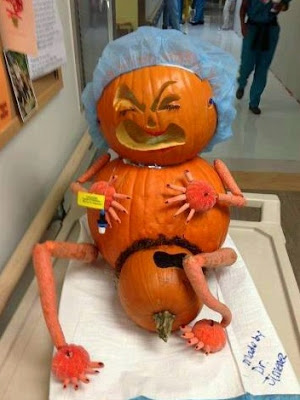I love my job as a nurse educator. My goal is to mentor nurses to achieve their highest potential. As a nurse educator, I am doing my share to influence nurses (future and current) to provide the best possible care to the patients under their care. As others have done for me, I want to pay forward the excellent mentoring that has guided me and inspired me to make a difference in my patients’ lives.
I believe in the enormous influence of education in changing lives. The great Nelson Mandela once said, “Education is the most powerful weapon which you can use to change the world” (Durando, 2013, para. 12). I believe that the student I teach will someday save someone’s life. My personal educational leadership policy has never wavered since the first day I was given a new nurse to precept. At that time, I just had finished my first year of work as an emergency nurse so I expressed my discomfort in being a preceptor to my head nurse. She looked me in the eye and said, “Your face lit up when you do patient teachings. I saw how your patient was so grateful to you for your clear and patient instructions. You are a born educator.”
I believe in the inviolable privilege of caring for a patient in need. As a nurse educator in a busy emergency department and as an adjunct clinical faculty, I always instill in my students and my nurses the love and respect for the profession. I encourage them to hold in their heart their passion for the job. I constantly remind them of Jean Watson’s saying “Caring is the essence of nursing and the most central and unifying focus for nursing practice" (Watson, 1985). Nurses need to embrace the profession and the unique opportunities it gives in service of others.
I believe that in today’s global society, we need to teach all healthcare personnel to respect cultural diversity. Having worked in an inner city hospital for twenty-one years, I appreciate the kaleidoscope of cultures that had enriched me as a nurse and as a person. The healthcare community is a microcosm of cultures that presents distinct and increased challenges to the delivery of safe and compassionate patient care. Leininger’s Theory of Culture Care Diversity and Universality provides a valuable framework for healthcare professionals to attend to the needs of their patients in a culturally congruent way (Leininger, 1995). Nurses are in an excellent position to foster cultural tolerance and respect for the similarities we all have.
I believe that interprofessional collaboration and team-building are crucial to ensuring patient safety. Medical errors and catastrophic injuries may be avoided with improved team dynamics and communication (O’Daniel & Rosenstein, 2008). The collaborative practice among the physicians, nurses, and other members of the healthcare team promotes shared mental models and efficient communication (IOM, 2010).
I believe in nurse empowerment. As the largest healthcare group, nurses should be vocal advocates for positive innovations in the workplace and the school community. Nurses need to recognize their collective power in producing ground-breaking solutions and demanding change in the healthcare community. I encourage the nurses to explore new frontiers in nursing excellence and to practice evidence-based practice. As recommended by the Institute of Medicine, nurses should prepare to practice to the full extent of their scope of practice (2010).
I believe in the concepts of emotional intelligence and transformational leadership. I will role-model presence and vision in leadership and will integrate the concepts of emotional intelligence in my professional relationships (Marshall, 2011). As Marshall wrote, “Change is a journey taken with those with whom you work” (2011, p. 90). As a change agent, I need to prepare myself fully for the challenge of leading the way in a complex healthcare landscape.
Looking back on that day when my head nurse started me on my way to a career in nursing education, I can only marvel at the sense of achievement it had given me. I reflect on the lessons learned and on the great memories along the way. Nursing had been good to me. I had given my all to this profession, but the rewards I received for my efforts are immeasurable.
References:
Durando, J. (2013). 15 of Nelson Mandela’s best quotes. Retrieved from http://www.usatoday.com/story/news/nation-now/2013/12/05/nelson-mandela-quotes/3775255/
Institute of Medicine. (2010, October 5). The future of nursing: Leading change, advancing health. Washington, DC: The National Academies Press; 2010. Retrieved from http://iom.edu/Reports/2010/The-Future-of-Nursing-Leading-Change-Advancing-Health.aspx.
Leininger, M. (1991). Transcultural nursing: the study and practice field. Imprint, 38(2), 55-66.
Marshall, E. S. (2011). Transformational leadership in nursing: From expert clinician to influential leader. New York, NY: Springer Publishing Company
O’Daniel, M. & Rosenstein, H. (2008). Chapter 33. Professional communication and team collaboration. Retrieved from http://www.ahrq.gov/professionals/clinicians-providers/resources/nursing/resources/nurseshdbk/ODanielM_TWC.pdf
Watson, J. (1985). Nursing: Human science and human care. CT: Appleton-Century-Crofts. 2nd printing 1988; 3rd printing 1999. NY: NLN (Jones and Bartlett).
Excerpt: ASU Educ Philosophy- JCS



.jpg)


















